2021

Victor R. Fuchs Award for Lifetime Contributions to the Field of Health Economics: Jonathan Skinner
Jonathan Skinner is a health economist who leads several research projects funded by the National Institute on Aging (NIA). These are large-scale interdisciplinary collaborations at Dartmouth and partner institutions, drawing on Dartmouth’s comprehensive Medicare and Medicaid datasets. Skinner’s ongoing research focuses on studying the contribution of “high-tech” health care to cost growth, the diffusion of various types of medical innovations (beneficial and harmful), how provider networks affect technology diffusion, and whether high-quality health providers affect population-level health outcomes.
A member of the National Academy of Medicine, Dr. Skinner is also a research associate and director of the Aging Program at the National Bureau of Economic Research (NBER). He has taught in Dartmouth’s economics department since 1995, where he serves as the James O. Freedman Presidential Professor, and is a frequent contributor to the national conversation about health policy.
ASHEcon Medal: Neale Mahoney and Heidi Williams
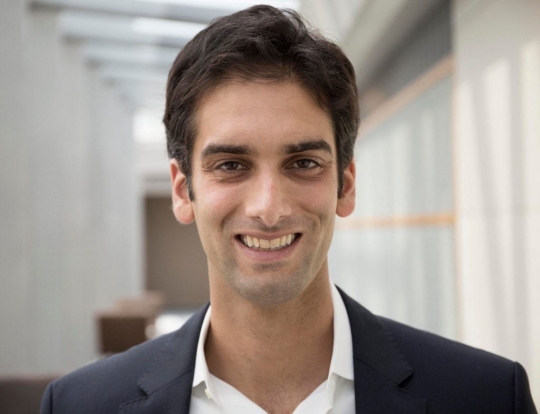
Neale Mahoney
Neale Mahoney is Professor of Economics at Stanford University. He is the George P. Shultz Fellow at SIEPR, a Research Associate at the National Bureau of Economic Research, and an Affiliated Professor at J-PAL. Mahoney is an applied micro-economist with an interest in health care and consumer financial markets. He was named a Sloan Research Fellow in 2016 and is a co-editor of American Economic Journal: Applied Economics. Before joining Stanford, Mahoney was Professor of Economics and David G. Booth Faculty Fellow at the University of Chicago Booth School of Business. He was also a Robert Wood Johnson Fellow in health policy research at Harvard University and worked for the Obama Administration on health care reform. Mahoney received a PhD and MA in economics from Stanford University and an ScB in applied mathematics-economics from Brown University.
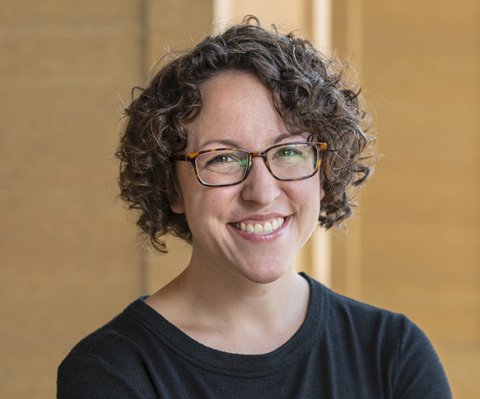
Heidi Williams
Heidi Williams is the Charles R. Schwab Professor of Economics at Stanford University; Professor, by courtesy, of Law at Stanford Law School; and a Senior Fellow at the Stanford Institute for Economic Policy Research (SIEPR). She is a Research Associate at the National Bureau of Economic Research (NBER), where she is co-director of the Health Care Program, and is the Editor of the Journal of Economic Perspectives. Her research agenda focuses on investigating the causes and consequences of technological change, with a particular focus on health care markets. Heidi received her AB in mathematics from Dartmouth College in 2003, her MSc in development economics from Oxford University in 2004, and her PhD in economics from Harvard in 2010. She is the recipient of a MacArthur Foundation Fellowship (2015) as well as an Alfred P. Sloan Research Fellowship (2015), and has also been recognized for her undergraduate teaching, graduate teaching, and graduate advising.
The Willard G. Manning Memorial Award for the Best Research in Health Econometrics
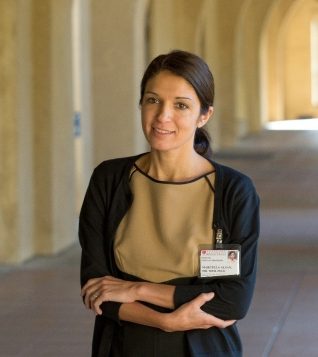
Marcella Alsan
Marcella Alsan is a Professor of Public Policy at Harvard Kennedy School. Alsan received a BA from Harvard University, a master’s in public health from Harvard School of Public Health, a MD from Loyola University, and a PhD in Economics from Harvard University. Alsan trained at Brigham and Women’s Hospital Hiatt Global Health Equity Residency Fellowship – then combined the PhD with an Infectious Disease Fellowship at Massachusetts General Hospital. Prior to returning to Harvard she was on faculty at Stanford. She is an applied microeconomist studying health inequality. Some recent papers include “Does Diversity Matter for Health: Experimental Evidence from Oakland” and “Tuskegee and the Health of Black Men” – published in the American Economic Review and The Quarterly Journal of Economics, respectively. These papers have been cited in the New York Times and other major media outlets and findings have been presented to the Association of American Medical Colleges and the Centers for Disease Control and Prevention. She is currently on the Board of Editors for Science Magazine, Co-Editor of the Journal of Health Economics and Co-Chair of the Health Care Delivery Initiative of Abdul Latif Jameel Poverty Action Lab based out of MIT. She is the co-recipient of the 2019 Arrow Award for Best Paper in Health Economics.

Owen Garrick, MD, MBA
Owen Garrick, MD, MBA, is Vice President and head of Clinical Trial Delivery at CVS Health. He is leading the effort to build the largest and most diverse decentralized clinical research network in the United States. His team is collectively responsible for planning, solutioning, executing, and close-out of clinical studies. Dr. Garrick oversees all operational aspects of clinical trials and interacts with the Quality function to insure research participant protections. Additionally, he reviews all recruitment and real world evidence studies conducted by the Clinical Trial Services business unit for scientific merit and patient safety.
Prior to CVS Health Dr. Garrick was President & CEO of Bridge Clinical Research, (BCR), a global clinical research and health communications firm focused on drug development, scientific advancement and patient engagement. Dr. Garrick leads the Clinical Trials, Research Analytics, Health Services Research and Healthcare Communications business units. He helped launch multiple collaborative efforts in advancing precision medicine research. He served as an advisor to the Stanford Precision Health for Ethnic and Racial Equity Center (SPHERE) which is one of five NIH centers focused on precision-medicine tools to improve the health of underserved ethnic and racial groups. Dr. Garrick was a Stanford sub-awardee for a project specifically focused on the willingness of patients with sickle cell disease to participate in precision medicine research.
Dr. Garrick is a nationally recognized leader in research and research ethics. He is a member of the National Genome Research Institute’s (NHGRI) Genomic Education of Healthcare Professionals Partnership. He was appointed to a term as a member of the Department of Health and Human Services Secretary’s Advisory Council on Human Research Protections (SACHRP) from 2012-2016 where he co-authored industry advisory documents around biospecimen data security and patient engagement in research. Dr. Garrick currently serves on the Executive Committee of Professional Responsibility in Medicine & Research (PRIMR) and was formerly a member of Quorum Review’s IRB. Dr. Garrick earned his MD from Yale School of Medicine and his MBA from Wharton School of Business. He holds an AB in Psychology from Princeton University.
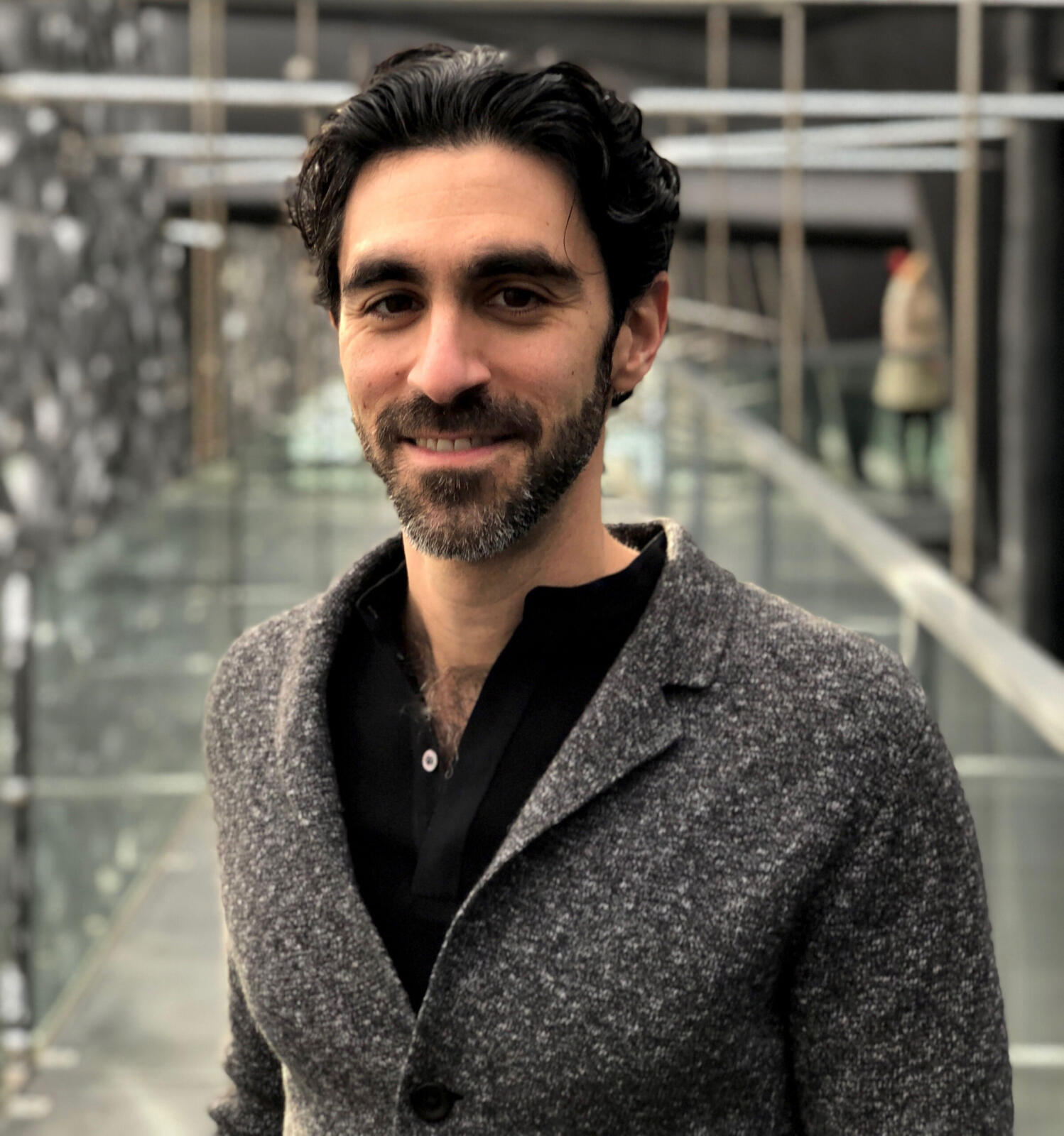
Ziad Obermeyer
Ziad Obermeyer is the Blue Cross of California Distinguished Associate Professor of Health Policy and Management at the UC Berkeley School of Public Health, where he does research at the intersection of machine learning, medicine, and health policy. He previously was an Assistant Professor at Harvard Medical School, where he received the Early Independence Award, the National Institutes of Health’s most prestigious award for exceptional junior scientists. He continues to practice emergency medicine in underserved parts of the US. Prior to his career in medicine, he worked as a consultant to pharmaceutical and global health clients at McKinsey & Co. in New Jersey, Geneva, and Tokyo.

Brian Powers
Brian Powers currently serves as the Deputy Chief Medical Officer for Humana. Dr. Powers previously worked as the Director of Population Health Strategy and Analytics for CareMore and Aspire Health at Anthem. Prior to that Brian served as Delivery Innovation Lead at CareMore Health and as a Clinical Fellow on Care Delivery Innovation and Strategic Investment at the Health Policy Commission. He previously served as Senior Program Assistant at the National Academy of Medicine. In this role, he was part of the Institute of Medicine’s (IOM) Roundtable on Value & Science-Driven Health Care, leading several projects including the CEO Checklist for High-Value Health Care and Best Care at Lower Cost: The Path to Continuously Learning Health Care in America. Brian has continued to work as a practicing internist at the Brigham and Women’s Hospital and at Atrius Health. He received an A.B. in History from Bowdoin College, and his MBA and M.D. from Harvard Business School.

Christine Vogeli
Dr. Vogeli is a health services researcher and the Director of Evaluation and Research for the Center of Population Health, Partners Healthcare. Her principal interests include primary care, disparities and healthcare quality. As an embedded investigator, she is involved in the design, implementation and evaluation of care delivery innovations. She is an expert in large administrative databases, including claims, financial and clinical data, and the use of these data to prospectively identify patients, and measure patient outcomes. Dr. Vogeli has also investigated the validity of physician and hospital performance metrics.
Dr. Vogeli played a leading role in quality assessment projects within Massachusetts General Hospital and the Partners Healthcare System. She developed the Partners Quality Report, first launched in fall 2000, and developed an outcomes reporting system for Partners Psychiatry and Mental Health. Since 2012 has been actively involved in efforts to design and evaluate population health programs for Medicare, Medicaid and Commercial risk patients across Partners Healthcare. She has designed algorithms to identify complex, rising risk patients, and is working to expand these efforts to incorporate psycho-social and clinical data. She is involved in numerous efforts to evaluate the impact of delivery system redesigns on patterns of health care utilization, quality of care, and health care costs. Dr. Vogeli has collaborated on research grants funded by PCORI, The Commonwealth Fund, The Robert Wood Johnson Foundation, the Agency for Healthcare Research and Quality, and others.
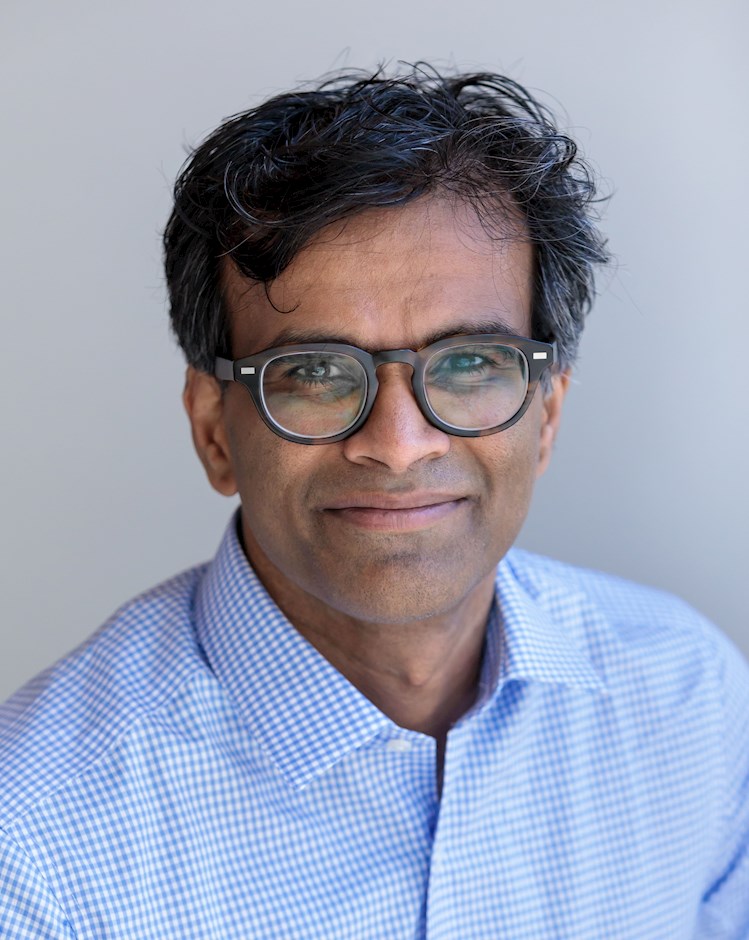
Sendhil Mullainathan
Sendhil Mullainathan is the Roman Family University Professor of Computation and Behavioral Science at Chicago Booth. His current research uses machine learning to understand complex problems in human behavior, social policy, and especially medicine, where computational techniques have the potential to uncover biomedical insights from large-scale health data. He currently teaches a course on Artificial Intelligence.
In past work he has combined insights from economics and behavioral science with causal inference tools—lab, field, and natural experiments—to study social problems such as discrimination and poverty. Papers include: the impact of poverty on mental bandwidth; how algorithms can improve on judicial decision-making; whether CEO pay is excessive; using fictitious resumes to measure discrimination; showing that higher cigarette taxes makes smokers happier; and modeling how competition affects media bias.
Mullainathan enjoys writing. He recently co-authored Scarcity: Why Having too Little Means so Much and writes regularly for the New York Times. Additionally, his research has appeared in a variety of publications including the Quarterly Journal of Economics, Science, American Economic Review, Psychological Science, the British Medical Journal, and Management Science.
Student Paper Award: Emily Cuddy and Jonathan Holmes
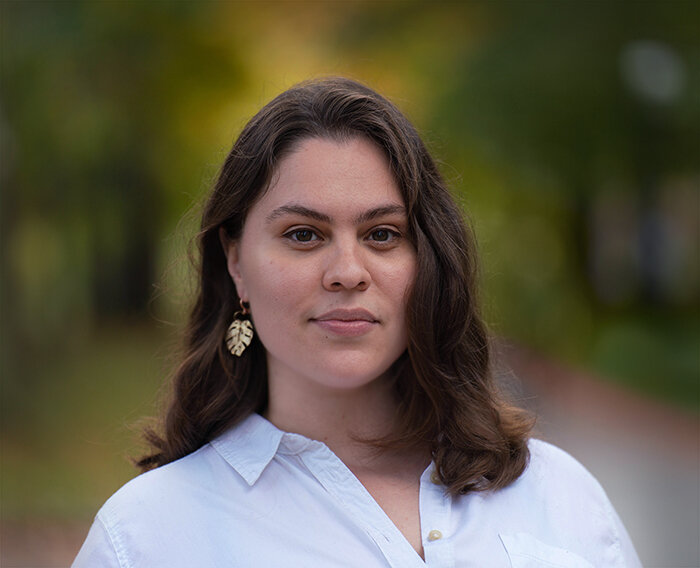
Emily Cuddy
"COMPETITION AND COLLUSION IN THE US GENERIC DRUG MARKET"
I am a Ph.D. Candidate in the Department of Economics at Princeton University. I am primarily interested in health economics and industrial organization.
I will be joining the Department of Economics at Duke University after a postdoctoral fellowship at the Kellogg School of Management at Northwestern University.

Jonathan Holmes
"Does Medicaid Make Private Health Insurance Cheaper?"
I am a Ph.D. candidate in economics at the University of California, Berkeley. My research interests are in public economics and health economics. Prior to Berkeley, I was a research fellow at the Kennedy School of Government at Harvard University. I have a Master of Arts from Queen’s University and a Bachelor of Social Sciences from the University of Ottawa, where I was a Loran Scholar.
I will be joining the University of Ottawa Department of Economics in 2022 after a one-year post-doc at the National Bureau of Economic Research.
2020
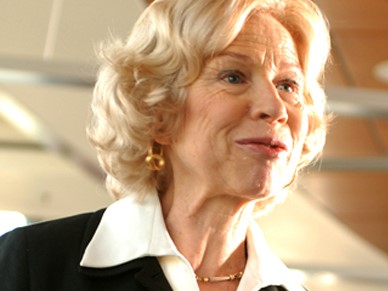
Victor R. Fuchs Award: Patricia M. Danzon
Patricia M. Danzon, is the recipient of the 2020 ASHEcon Victor R. Fuchs Award. The award is given to an economist who has made significant lifetime contributions to the field of health economics.
Patricia Danzon is the Celia Moh Professor at The Wharton School, University of Pennsylvania. Professor Danzon received a B.A. from Oxford University, England, and a Ph.D. in Economics from the University of Chicago. She has held faculty positions at Duke University and the University of Chicago.
Professor Danzon is an internationally recognized expert in the fields of economics of health care, the biopharmaceutical industry, and insurance. She is a member of the Institute of Medicine and the National Academy of Social Insurance, and a Research Associate at the National Bureau of Economic Research. She has served as a consultant to many governmental agencies, NGOs and private corporations in the US and internationally. Professor Danzon has served on the Board of Directors of Medarex, Inc., the Policy and Global Affairs Board of the National Academy of Sciences, and the Policy Board of the Office of Health Economics in London.
Professor Danzon has been an Associate Editor of the American Economic Review, the Journal of Health Economics and the International Journal of Health Care Finance and Economics. She has published widely in scholarly journals on a broad range of subjects related to health care, pharmaceuticals, biotechnology, insurance, and the economics of law. She co-edited the Handbook on the Economics of the Biopharmaceutical Industry (2012), for Oxford University Press. Selected publications include: “Exits from Vaccine Markets in the US: The Role of Competition vs. Regulation” (with N. Pereira), International J. of the Economics of Business 2011; “Setting Cost-Effectiveness Thresholds As A Means To Achieve Appropriate Drug Prices In Rich And Poor Countries” (with A. Towse and A. Mulcahy) Health Affairs 2011; “Drug Pricing and Value in Oncology” (with E. Taylor) The Oncologist 2010; “Productivity in Pharmaceutical-Biotechnology R&D: The Role of Experience and Alliances” (with S.Nicholson and N.Pereira) J. of Health Economics 2005; “Biotech-Pharma Alliances as a Signal of Asset and Firm Quality” (with S. Nicholson and J. McCulloch, J. of Business 2005.
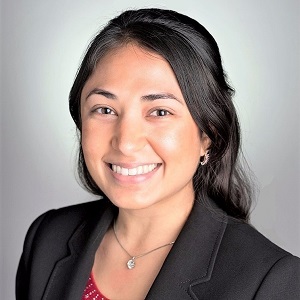
Student Paper Award: Aparna Soni
"Health Insurance, Price Changes, and the Demand for Pain Relief Drugs: Evidence from Medicare Part D"
Aparna Soni is an assistant professor in the Department of Public Administration and Policy at American University. She studies the impacts of public programs and policies on individuals’ health. Two particular areas of research interests are: 1) the economics of risky health behaviors; and 2) the relationship between health insurance, health, and broader public program participation. Her work has been published in journals such as Journal of Policy Analysis and Management, JAMA Oncology, and Health Affairs.
Aparna completed her PhD in Business Economics and Public Policy at Indiana University in Bloomington. Prior to her graduate studies, she worked as an economist at IHS Global Insight and as an analyst at the US International Trade Commission.
2019
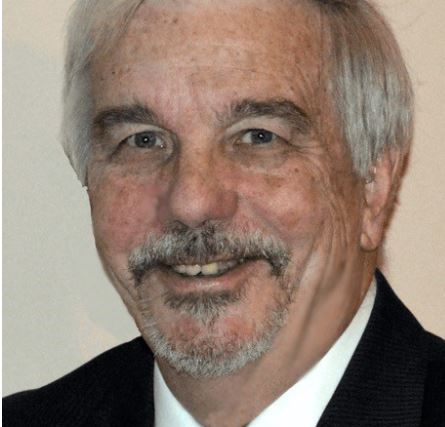
Victor R. Fuchs Award: Charles E. Phelps, PhD
Charles E. Phelps, PhD, is the recipient of the 2019 ASHEcon Victor R. Fuchs Award. The award is given to an economist who has made significant lifetime contributions to the field of health economics.
Dr. Phelps is provost emeritus of the University of Rochester. He began his research career at the RAND Corporation in 1971, and helped found the RAND Health Insurance Study, a large randomized controlled trial assessing the medical use and health outcomes arising from different health insurance coverage; he also served as director of RAND’s Program on Regulatory Policies and Institutions. He joined the University of Rochester in 1984, holding appointments in the departments of Economics and Political Science, and serving as director of the Public Policy Analysis Program and chair of the Department of Community and Preventive Medicine in the schools of Medicine and Dentistry.

ASHEcon Medal: Amanda Kowalski, PhD
Amanda Kowalski, PhD is the recipient of the 2019 ASHEcon Medal. The award is given to an economist age 40 or under who has made the most significant contributions to the field of health economics. Dr. Kowalski, the Gail Wilensky Professor of Applied Economics and Public Policy at the University of Michigan Department of Economics, is a health economist who specializes in bringing together theoretical models and econometric techniques to answer questions that inform current debates in health policy. Professor Kowalski’s recent research advances methods to analyze experiments and clinical trials with the goal of designing policies to target insurance expansions and medical treatments to individuals who will benefit from them the most. Professor Kowalski has been honored with a CAREER Award from the National Science Foundation and the Yale Arthur Greer Memorial Prize for Outstanding Scholarly Publication or Research. Her research has received the HCUP Outstanding Article of the Year Award, the Garfield Economic Impact Award, the National Institute of Health Care Management Research Award, and the Zellner Thesis Award.

Willard Manning Memorial Award: John Mullahy, PhD
"Individual results may vary: Inequality-probability bounds for some health-outcome treatment effects"
John Mullahy, PhD is the recipient of the 2019 Willard Manning Award. The award memorializes Will Manning’s contributions to the development and application of econometric methods in health economics by recognizing the best published health economics research in econometric methodology or econometric application. Dr. Mullahy is a Professor of Health Economics in the Department of Population Health Sciences, Affiliate Professor at the La Follette School of Public Affairs, Co-Director of the Robert Wood Johnson Health & Society Scholars Program, and Co-Director of the NIMH training program in Health and Mental Health Economics, all at the University of Wisconsin-Madison. Professor Mullahy is also Honorary Professor of Economics at NUI Galway and Research Associate at the National Bureau of Economic Research. He currently serves as Co-Editor of Health Economics. Professor Mullahy received his PhD in Economics from the University of Virginia and his BA in Economics magna cum laude from Georgetown University. He did postdoctoral work in health economics at Yale University. Professor Mullahy’s research interests include the evaluation of health interventions, comparative effectiveness analysis, analysis of patterns of healthcare spending and costs, health-related behaviors, and the applications of econometric methods to health economics and health policy analysis.

Student Paper Award: Eunhae Shin
"Hospital responses to price shocks under the prospective payment system"
Eunhae Shin is the recipient of the 2019 Student Paper Award. The award is given to the best student sole-authored paper. She is a Ph.D. candidate in Economics at the University of Southern California. Her primary research interests are Health Economics, Labor Economics, and Empirical Industrial Organization.
2018

Victor R. Fuchs Award: Thomas McGuire
Thomas G. McGuire, PhD, is the recipient of the 2018 ASHEcon Victor R. Fuchs Award. The award is given to an economist who has made significant lifetime contributions to the field of health economics. Since 2001, McGuire has been a professor of health economics in the Department of Health Care Policy at Harvard Medical School. For 25 years prior, he worked in the Department of Economics at Boston University. He is a Research Associate at the National Bureau of Economic Research and a member of the National Academy of Medicine. He was a co-editor of the Handbook of Health Economics Volume 2, and served for ten years as an editor of the Journal of Health Economics. McGuire’s research focuses on the design and impact of health care payment systems, the economics of health care disparities, the pharmaceutical sector, and the economics of mental health policy. His awards for research include the Arrow Award from the International Health Economics Association. He received the Everett Mendelsohn Excellence in Mentoring Award from Harvard’s Graduate School of Arts and Sciences.McGuire received his BA in economics from Princeton in 1971 and his Ph.D. in economics from Yale in 1976.
ASHEcon Medal: Benjamin Handel & Jonathan Kolstad

Jonathan Kolstand, PhD
Jonathan Kolstand, PhD, is the recipient of the 2018 ASHEcon Medal. The award is given to an economist age 40 or under who has made the most significant contributions to the field of health economics. Professor Kolstad is an Associate Professor of Economic Analysis and Policy at the Haas School of Business at University of California, Berkeley and a Research Associate at the National Bureau of Economic Research. Kolstad is an economist whose research interests lie at the intersection of health economics, industrial organization and public economics. He is particularly interested in finding new models and unique data that can account for the complexity of markets in health care, notably the role of information asymmetries and incentives.

Benjamin Handel, PhD
Benjamin Handel, PhD, is the recipient of the 2018 ASHEcon Medal. The award is given to an to economist age 40 or under who has made the most significant contributions to the field of health economics. Benjamin Handel is an Associate Professor of Economics at the University of California, Berkeley, where he has taught since 2010. He received his A.B. from Princeton and his Ph.D. from Northwestern. He was named a National Bureau of Economic Research faculty research fellow in industrial organization in 2011 and became a research associate in 2016, when he also became Co-Director of the NBER working group on insurance markets. He is an expert on health care business and policy and has worked with numerous businesses and policymakers in partnerships to research key topics in health care economics. Handel’s work is primarily concerned with the economic analysis of health insurance markets.
Willard Manning Award: Pat Bajari, Han Hong, Minjung Park and Robert Town
“Estimating Price Sensitivity of Economic Agents Using Discontinuity in Nonlinear Contracts”
Pat Bajari, Han Hong, Minjung Park and Robert Town are the recipients of the 2018 Willard Manning Award. The award memorializes Will Manning’s contributions to the development and application of econometric methods in health economics by recognizing the best published health economics research in econometric methodology or econometric application.

Pat Bajari, PhD
Pat Bajari, PhD, is the recipient of the 2018 Willard Manning Memorial Award. Pat is an applied econometrician currently working as Chief Economist and Vice President for Amazon in Seattle, WA. His team of PhD economists, software development/data engineers, and machine learning/data scientists use applied econometrics and scientific practices to help Amazon better serve their customers and operate more efficiently. They have collaborated with other Amazonians to develop technically advanced but practical solutions in operations, pricing, forecasting, applied marketing and merchant services that currently power their platform.Prior to working at Amazon, he was a full time academic working in applied econometrics and empirical industrial organization. He is a Research Fellow at the National Bureau of Economic Research and has served as a journal editor and thesis advisor. While in academia, he consulted to the Boston Consulting Group, the Federal Reserve System, the Law and Economics Consulting Group, the US Federal Trade Commission and served as an expert witness in antitrust and litigation.

Han Hong
Han Hong is the recipient of the 2018 Willard Manning Memorial Award. Han has been a Professor of Economics at Stanford University since 2007. His research interests focus on econometrics, industrial organization, and applied microeconomic analysis. He has published in top economics and econometrics journals on a wide range of research topics. In 2009 he was elected to be a member of the Econometric Society, an internationally recognized organization for economists and econometricians. The Econometric Society has about 700 fellows worldwide in 2014. New members are elected each year through an anonymous voting process. Professor Hong has also visited and taught in the University of Chicago, Beijing University, Renmin University, Zhongshan University, HongKong University of Science and Technology, and the Catholic Universite de Louvain in Belgium. He is currently a co-editor of the Journal of Econometrics, a flagship journal for econometrics research.

Minjung Park, PhD
Minjung Park, PhD, is the recipient of the 2018 Willard Manning Memorial Award. Minjung is an empirical microeconomist with specialties in empirical industrial organization, microeconometrics and marketing. Her main research interest lies in firm behavior in a competitive marketplace and various strategies used by firms to attain the competitive edge. In her work, she employs structural models to analyze how firms respond to institutional and market incentives and how the strategic interactions influence market structure and consumer welfare. She is also interested in identification and estimation of time preferences in dynamic discrete choice models. She is currently an associate professor in the Department of Economics at Ewha Womans University in South Korea.
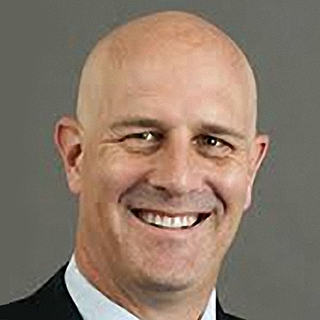
Robert Town, PhD
Robert Town, PhD, is the recipient of the 2018 Willard Manning Memorial Award. Robert is an authority on competition economics with a focus on healthcare markets, mergers analysis, and the airline industry. His areas of expertise include health economics, industrial organization, and applied econometrics, with particular emphasis on mergers, hospital structure and efficiency, health insurance, and physician incentives. In his research, Professor Town studies provider and insurer competition, the role of competition in determining hospital quality, and healthcare market dynamics. In addition to articles in the Journal of Health Economics, Econometrica, American Economic Review, Health Affairs, and the Antitrust Bulletin, he has cowritten book chapters about healthcare provider competition and deregulated airlines. Professor Town is an associate editor at the American Economic Journal: Applied Economics. He’s currently a professor at the University of Texas, Austin.
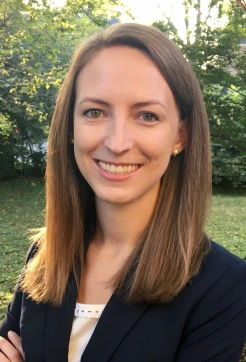
Student Paper Award: Emily Lawler
“Effectiveness of Vaccination Recommendations versus Mandates: Evidence from the Hepatitis A Vaccine”
Emily Lawler, PhD, is the recipient of the 2018 Student Paper Award. The award is given to the best student sole-authored paper. Emily Lawler is a health economist whose research focuses on the effects of public policies on maternal and child health, both in the United States and the developing world. Her current work studies the effects of vaccination policies on health and health behaviors. In the fall she will join the University of Georgia’s School of Public and International Affairs as an Assistant Professor.
2016
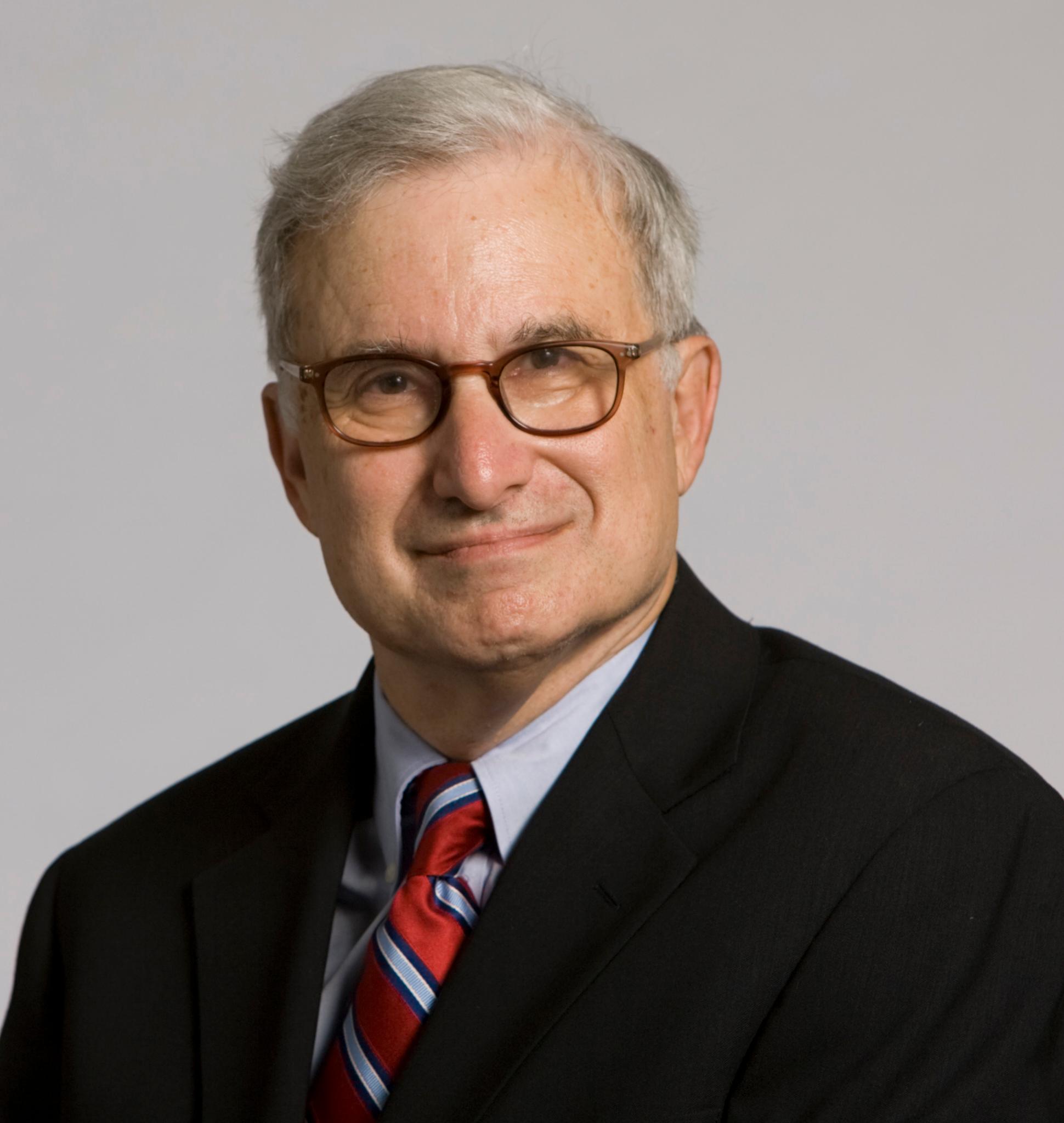
Victor R. Fuchs Award: Frank Sloan
Frank Sloan is the J. Alexander McMahon Professor of Health Policy and Management and Professor of Economics at Duke University. He is the former Director of the Center for Health Policy, Law and Management at Duke (CHPLM) that originated in 1998. He holds faculty appointments in five departments at Duke, with Economics being his primary appointment. He did his undergraduate work at Oberlin College and received his Ph.D. in economics from Harvard University. Before joining the faculty at Duke in July 1993, he was a research economist at the RAND Corporation and served on the faculties of the University of Florida and Vanderbilt University. He was Chair of the Department of Economics at Vanderbilt from 1986-89. His current research interests include alcohol use and smoking prevention, long-term care, medical malpractice, and cost-effectiveness analyses of medical technologies. He also has a long-standing interest in hospitals, including regulation of hospitals, health care financing, and health manpower. Frank has served on several national advisory public and private groups. He is a member of the Institute of Medicine and was formally a member of the Physician Payment Review Commission. He is the author of about 300 journal articles and book chapters and has coauthored and coedited about 20 books.
Will Manning Award: Andrew Jones, James Lomas and Nigel Rice
“Healthcare Cost Regressions: Going Beyond the Mean to Estimate the Full Distribution.” Health Economics, 24: 1192–1212.
Abstract: Understanding the data generating process behind healthcare costs remains a key empirical issue. Although much research to date has focused on the prediction of the conditional mean cost, this can potentially miss important features of the full distribution such as tail probabilities. We conduct a quasi-Monte Carlo experiment using the English National Health Service inpatient data to compare 14 approaches in modelling the distribution of healthcare costs: nine of which are parametric and have commonly been used to fit healthcare costs, and five others are designed specifically to construct a counterfactual distribution. Our results indicate that no one method is clearly dominant and that there is a trade-off between bias and precision of tail probability forecasts. We find that distributional methods demonstrate significant potential, particularly with larger sample sizes where the variability of predictions is reduced. Parametric distributions such as log-normal, generalised gamma and generalised beta of the second kind are found to estimate tail probabilities with high precision but with varying bias depending upon the cost threshold being considered.
Student Paper Awardees: Elena Prager and Juan Pablo Atal

Elena Prager
“Tiered Hospital Networks, Health Care Demand, and Prices”
Elena Prager is an economist interested in issues at the intersection of health economics and industrial organization. Her research focuses on the supply side of the health care market, studying strategic behavior among health insurers and health care providers. Current work examines the interaction of health insurance design, hospital-insurer price negotiations, and provider network formation. Prior to her doctoral studies at the University of Pennsylvania’s Wharton School, Elena graduated with an iBBA in business and economics from York University. This fall, Elena will join Northwestern University’s Kellogg School of Management as an Assistant Professor.
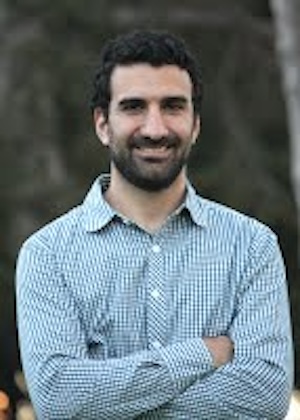
Willard Manning Memorial Award: John Mullahy, PhD
“Lock-in in Dynamic Health Insurance Contracts: Evidence from Chile”
Juan Pablo Atal is an applied microeconomist whose research focuses on different aspects of health economics. He is currently studying the workings of long term health insurance, the determinants of team productivity in the emergency department, and the effect of quality regulations on the pharmaceutical market. Prior to earning his PhD in Economics from the University of California at Berkeley, Juan Pablo graduated with a Bs. in Industrial Engineering and an M.A. in Economics from Universidad de Chile, and worked as a research assistant at the Inter-American Development Bank. This fall, he will join the Department of Economics at the University of Pennsylvania.
2014
Victor R. Fuchs Award: Dr. Joesph Newhouse
Dr. Joesph Newhouse, is the John D. MacArthur Professor of Health Policy and Management at Harvard University, Director of the Division of Health Policy Research and Education, chair of the Committee on Higher Degrees in Health Policy, and Director of the Interfaculty Initiative in Health Policy. He is a member of the faculties of the John F. Kennedy School of Government, the Harvard Medical School, the Harvard School of Public Health, and the Faculty of Arts and Sciences, as well as a Faculty Research Associate of the National Bureau of Economic Research. He received B.A. and Ph.D. degrees in Economics from Harvard University. Following his Bachelor’s degree, he was a Fulbright Scholar in Germany. Dr. Newhouse spent the first twenty years of his career at RAND, where he designed and directed the RAND Health Insurance Experiment, which studied the consequences of different ways of financing medical services. From 1981 to 1985 he was Head of the RAND Economics Department.
ASHEcon Medal: Amy Finkelstein
Amy Finkelstein is the Ford Professor of Economics at the Massachusetts Institute of Technology. She is the co-Scientific Director of J-PAL North America, a research center at MIT designed to encourage and facilitate randomized evaluations of important domestic policy issues. She is also the co-Director of the Public Economics Program at the National Bureau of Economic Research, a member of the Institute of Medicine and the American Academy of Arts and Sciences, and a Fellow of the Econometric Society. She has received numerous awards and fellowships including the John Bates Clark Medal (2012), given annually to the economist under the age of 40 who is judged to have made the most significant contribution to economic thought and knowledge.
Student Paper Award: Alice Chen
Alice Chen is a health economist whose research focuses on the interactions between health insurance, access to care, and labor markets. Her research examines how physicians respond to changes in Medicaid payment and eligibility, and her work has been published in the Journal of Health Economics. Her paper was entitled “Do the Poor Benefit From More Generous Medicaid Physician Payments?” Prior to earning her PhD in economics from the University of Chicago, Booth School of Business, Alice graduated with a BS and SM in applied math from Harvard. She will join the University of Southern California, Price School of Public Policy as an Assistant Professor.
2012
Victor R. Fuchs Award: Mark V. Pauly
Mark V. Pauly, Bendheim Professor in the Department of Health Care Management, Professor of Health Care Management, and Business and Public Policy at The Wharton School. He is Co-Director of the Roy and Diana Vagelos Life Sciences and Management Program and Professor of Economics in the School of Arts and Sciences at the University of Pennsylvania. Dr. Pauly received the Ph.D. in Economics from the University of Virginia. One of the nation’s leading health economists, he has made significant contributions to the fields of medical economics and health insurance. His classic study on the economics of moral hazard was the first to point out how health insurance coverage may affect patients’ use of medical services. A former commissioner on the Physician Payment Review Commission, Dr. Pauly has served on the advisory committee to the Agency for Health Care Research and Quality and the Medicare Technical Advisory Panel. He recently served on the National Advisory Council for the National Institutes of Health National Center for Research Resources. He is Co-Editor-in-Chief of the International Journal of Health Care Finance and Economics, an associate editor of the Journal of Risk and Uncertainty, and Co-Editor of the Handbook of Health Economics, Volume 2.
ASHEcon Medal: Amitabh Chandra
Amitabh Chandra is a Professor at the Harvard Kennedy School of Government and a Research Associate at the National Bureau of Economic Research (NBER). In 2011 he served as Massachusetts’ Special Commissioner on Provider Price Reform. He is an editor of the Review of Economics and Statistics, Economics Letters, and the American Economic Journal, and was previously an editor at the Journal of Human Resources. His research has been supported by the National Institute of Aging, the National Institute of Child Health and Development, the Robert Wood Johnson Foundation, and has been published in the American Economic Review, the Journal of Political Economy, and the New England Journal of Medicine. He is the first-prize recipient of the Upjohn Institute’s Dissertation Research Award, the Kenneth Arrow Award for best paper in health economics, and the Eugene Garfield Award for the impact of medical research.
Student Paper Award: Michael Darden
Michael Darden, Tulane University, “Smoking, Expectations, and Health: A Dynamic Stochastic Model of Lifetime Smoking”
2010
Victor R. Fuchs Award: Willard G. Manning
Willard G. Manning, Professor in the Harris School of Public Policy and the Department of Health Studies at the University of Chicago
ASHEcon Medal: Mark G. Duggan
Mark G. Duggan, Professor of Economics, University of Maryland, and Senior Economist, Council of Economic Advisers
Student Paper Award: Jonathan T. Kolstad
Jonathan T. Kolstad, Wharton School, University of Pennsylvania, “Information and Quality when Motivation is Intrinsic: Evidence from Surgeon Report Cards”
2008
Victor R. Fuchs Award: Michael Grossman
Michael Grossman, CUNY and NBER
ASHEcon Medal: Loren Baker
Loren Baker, Stanford University
Student Paper Award: Susan Feng Lu
Susan Feng Lu, Northwestern University
2006
Presented at the First Biennial Conference in Madison.
ASHEcon Medal: David Cutler & Jonathan Gruber
David Cutler, Otto Eckstein Professor of Applied Economics, Harvard
Jonathan Gruber, Professor of Economics, MIT
Student Paper Award: Grant Miller
Grant Miller, Stanford, for his paper titled “Contraception as Development? New Evidence from Family Planning in Colombia.”




